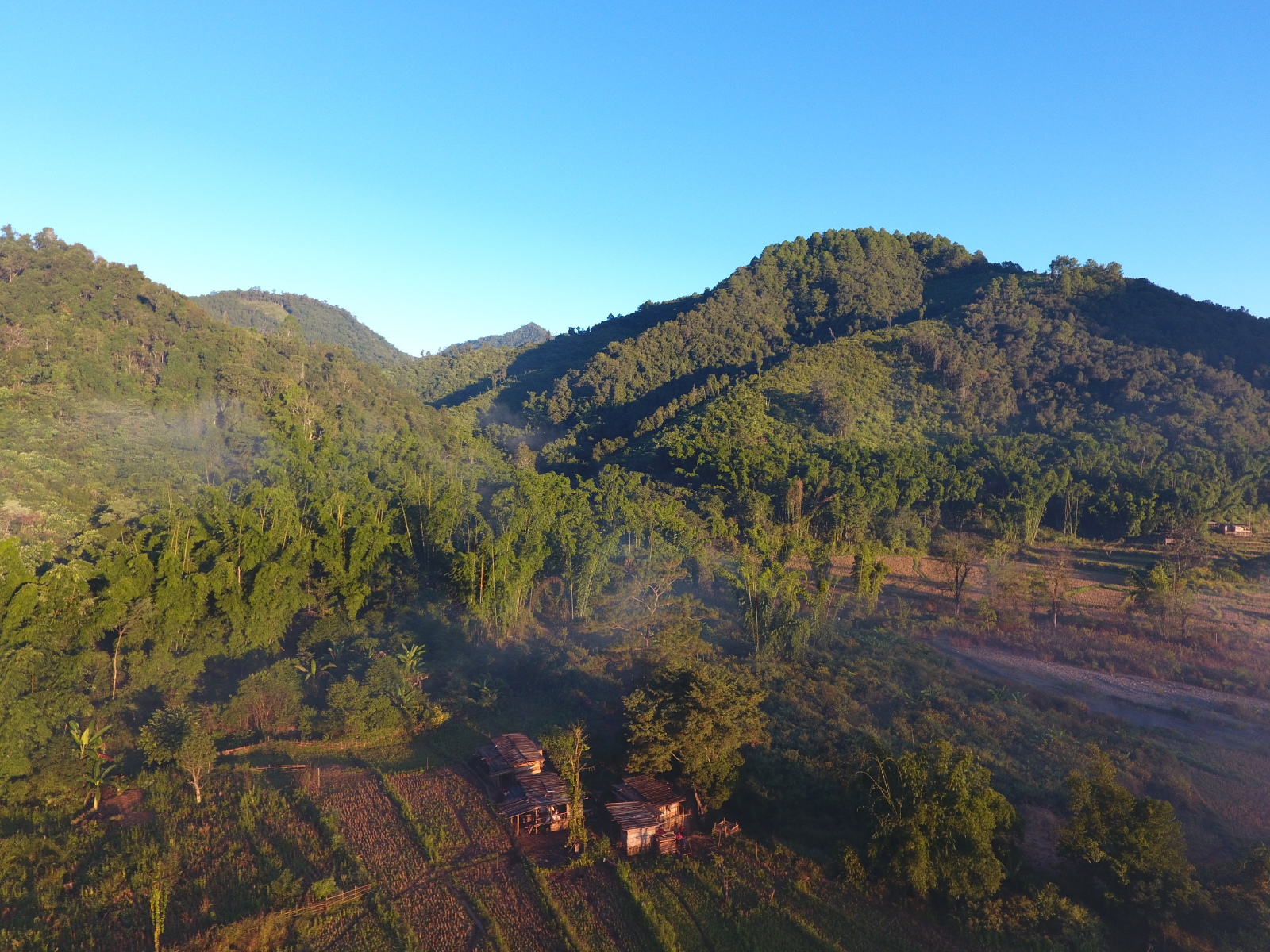Karen State is the most exciting and unique opportunity for conservation in South East Asia. It contains some of the last tracts of rare pristine forest landscapes. These habitats host tigers, leopards, and elephants and a host of other endangered species of global significance.
Myanmar is going through a rapid phase of political change and industrial growth. This project, with unique access and relationships to these areas, undertakes direct wildlife conservation initiatives working within a broader framework to support peacebuilding processes and sustainable development in the region to enable durable large-scale conservation with communities.
Ultimately, the program aims to support the establishment of the 5,205 square km Salween Peace Park to foster peace, cooperation, cultural preservation and environmental conservation through a bottom-up, people-centred planning approach, that integrates community economic development within a conservation framework.
Find out more about the Karen Wildlife Conservation Initiative
Karen And Community
The Karen indigenous communities have collectively and sustainably managed their resources until today, despite the decades-long armed conflict.
Community-led, ground-based conservation planning, management and practice have gained international recognition as more effective, durable and responsible conservation strategies. The work of this project recognizes that successfully achieving locally appropriate biodiversity and wildlife conservation management requires that:
- Indigenous people are at the frontline of conservation planning, management and implementing activities
- Indigenous peoples socio-cultural understanding of nature and traditional ecological knowledge must be integrated with scientific knowledge systems.
What is Wildlife Asia doing?
Wildlife Asia, leading the Karen Wildlife Conservation Initiative (KWCI), in partnership with the Karen Environmental and Social Action Network (KESAN), and the Kawthoolei Forestry Department (KFD), seeks your support to safeguard this critical biodiversity hotspot and uplift and secure the lives of local communities.
The Vision Our mission is to lay the institutional, community, and field-based foundations for the long-term conservation of wildlife and their habitats. By fostering sustainable livelihoods, strengthening community governance, and enhancing wildlife protection mechanisms, this initiative aims to ensure a thriving future for both people and nature in Kawthoolei.
Key Objectives
- Strengthen Community-Based Conservation: Establish and equip additional community-based ranger teams and enhance governance through Indigenous knowledge and land-use planning, including the establishment of new Protected Areas and Wildlife Sanctuaries.
- Monitor and Protect Wildlife: Conduct targeted camera trap surveys and improve the capacity of KFD and local rangers to track and protect critically endangered wildlife.
- Empower Local Communities: Promote sustainable livelihoods through initiatives like community forestry and strengthening climate resilience, irrigation canals, buffalo banks, and environmental education programs.
- Build Long-Term Capacity: Strengthen the institutional framework of KFD to lead conservation efforts and ensure sustainable management of the Dawna-Karen Hills landscape.
All of our activities recognise the vision of the Karen people and the integration of our programs into the proposed Salween Peace Park. This bold and exciting model will foster peace, cooperation, cultural preservation and environmental conservation through a bottom-up people-centred approach, providing a long-term and sustainable solution to biodiversity management in Karen State.
Wildlife Asia is committed to the ongoing support of this critical program with a focus to build local capacity for the long-term management of biodiversity conservation in Karen State.

Burma’s Last Eden
How Can You Help!
Wildlife Asia stands beside the Karen people, providing support and guidance to help them to implement their bold and exciting plans for the future.
Along with the continued establishment of new Protected Areas, further expansion and ongoing support of our KWCI Community Ranger teams is essential to ensure maximum coverage of rangers within these high-value forests. The teams also require ongoing training and the supply of equipment and tools to enable them to operate under difficult conditions.
We need your donations to train and equip rangers and ensure the direct and immediate protection of wildlife populations.
Make a Monthly Gift – Help Wildlife Asia to ensure the ongoing protection of pristine high biodiversity forests and critically endangered wildlife populations by making a monthly donation to Wildlife Asia.
Please reach out to us for a copy of our KWCI Donor Prospectus if you are considering a significant donation.
About Your Donation
Wildlife Asia works hand in hand with local communities, authorities and NGOs to protect wildlife and habitat in landscapes with critically important biodiversity.
A trusted and efficient organization, we are committed to ensuring both immediate protection for wildlife as well as building the foundations for long-term sustainability of conservation efforts and the co-existence of humans and wildlife.
Your donation will be used to support Wildlife Asia’s programs including Wildlife Protection Units, Protected Area development, rehabilitation and reintroduction programs, community education and livelihood development.

